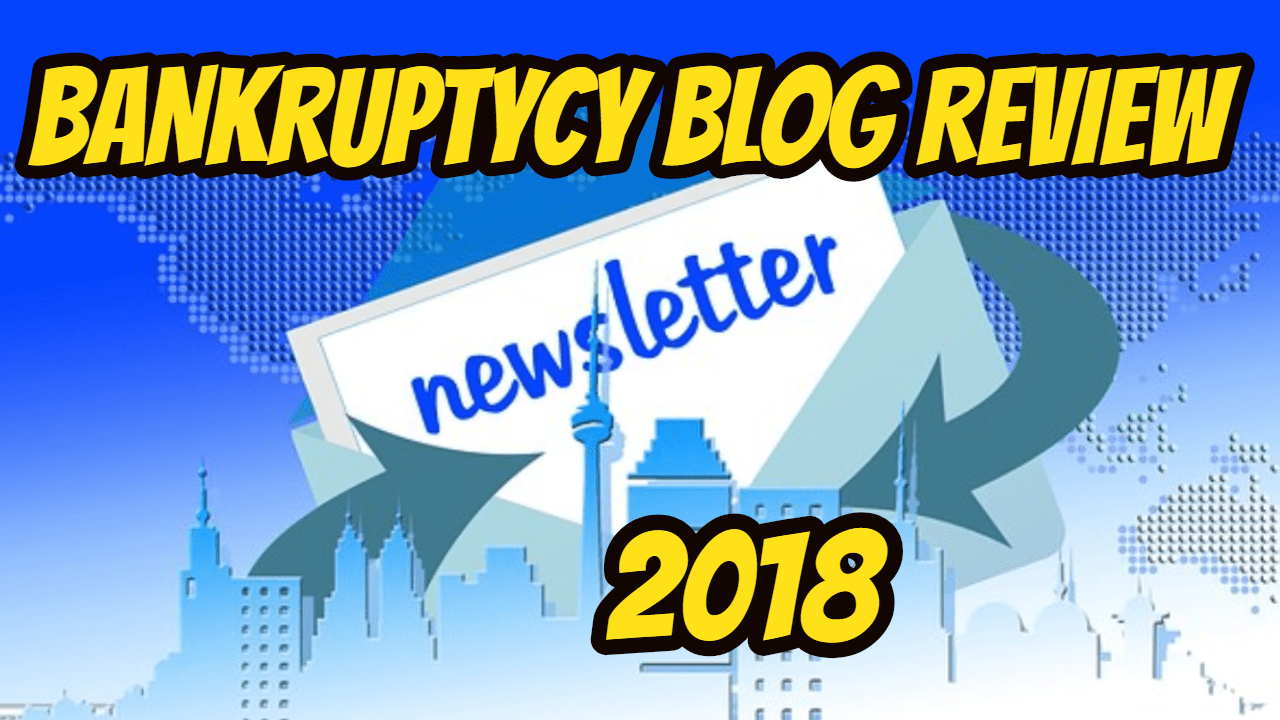 We hope that you and your family are safe, healthy and secure during this COVID-19 pandemic. Ira Smith Trustee & Receiver Inc. is absolutely operational and Ira, in addition to Brandon Smith, is readily available for a telephone consultation or video meeting.
We hope that you and your family are safe, healthy and secure during this COVID-19 pandemic. Ira Smith Trustee & Receiver Inc. is absolutely operational and Ira, in addition to Brandon Smith, is readily available for a telephone consultation or video meeting.
If you would prefer to listen to the audio version of this Brandon Blog, please scroll to the very bottom of the page and click play on the podcast.
Why is FOMO a thing?
Are you experiencing FOMO right now? In the modern-day, FOMO, or fear of missing out, is a significant stressor in people’s lives. You’re wondering how you are going to make it through life at such a fast pace. Social media posts constantly tell you what your friends are doing, what you should do with your life, and what to buy. People suffering from FOMO have lost track of what’s important in life, and you have lost track of what you want to accomplish. If you want to keep your mind (and your bank account) and financial situation healthy, there are steps you can take to make sure that you have proper spending habits.
Missing out on important events or social gatherings is the feeling of being excluded. The term FOMO was coined and popularized by Patrick J. McGinnis in The Harbus, the Harvard Business School’s magazine, in 2004.
It is often difficult to bring up the subject of money with friends, yet it is one of the most important. I discuss how FOMO can lead to runaway debt and how to avoid it, in this Brandon Blog.
FOMO and the rise of social media-induced debt
The internet has created a social media engagement platform for bragging; things, events, and even happiness itself can appear competitive on social media. You do not just feel as if there are better things that you could be doing at this moment, but you also feel as if you are missing out on something fundamentally important that others are experiencing right now.
It is difficult to identify the nuances of FOMO since social media users have different social priorities. FOMO users share one common characteristic: the feeling of social exclusion.
Self-concept and perception of oneself play a role in FOMO. Individuals’ perceptions of and experiences of the world – and what they feel they are excluded from – play a critical role in their fear of missing out. There is a very strong connection between self-perception on social media and FOMO.
FOMO has become an all-too-common affliction. FOMO can strike anyone at any time, but it is usually strongest in children, teenagers and young adults. FOMO can also have serious financial repercussions.
FOMO debt on the rise: Nearly 50% of millennials overspend to keep up with friends
Credit Karma/Qualtrics surveyed 18-38-year-olds in both Canada and the United States prior to the pandemic. With November being financial literacy month in Canada, the topic of FOMO debt is timely, notwithstanding when the surveys were done. Findings were strikingly similar in each country. Millennials are overspending on food and drinks, music events and tattoos because of rising social pressures.
In the Credit Karma surveys, 48% of Americans and half of Canadian young adults reported spending money they did not have and going into debt to keep up with their peers. Over a third of respondents said it is hard to turn down friends who suggest activities they cannot afford.
Almost one-third of young Canadians who got into FOMO-related debt owed more than $500. Key survey findings show that among those who have borrowed to keep up with friends:
- 49% said they did it to avoid being excluded from future events if they did not participate in spending time with friends.
- A similar 49% said they didn’t want to miss something once-in-a-lifetime or novel in their social lives.
- 45% of respondents said they didn’t want to be seen as an outsider.
- 34% feel it is the way to keep friendships strong because they feared losing friends.
- 29% feared being judged.
According to Credit Karma, the items and experiences that push Millennials into FOMO-related debt include:
- social situations requiring the purchase of meals and alcohol (47%);
- clothes (41%);
- travel (38%).
- Autos (15%);
- body art (11%); and
- residential (9%).
In other words, FOMO-related debt is a real problem among young adults.
How to Avoid Overspending Due to FOMO
The temptation to think you won’t have it later or your friends won’t like you if you don’t buy it now can be quite strong. This may not always be true. Perhaps you would be better off finding new friends who don’t spend money so obsessively all the time.
Simply stopping spending is the first step toward overcoming FOMO unnecessary spending! Not forever, just until you figure things out. You might also consider limiting your use of credit cards or even debit cards and making most of your purchases with cash. If you feel FOMO creeping in, you will be less likely to impulse spend. It will also prevent you from incurring more FOMO-fueled debt.
You can avoid FOMO-fueled debt by working within your budget and becoming comfortable with saying no to overspending. Having a budget doesn’t mean you have to give up every nice dinner or outing, but you have to understand what is within it.
I have written on the need for household budgets many times on my Brandon Blog. You can prevent FOMO-fueled debt by creating a monthly budget or even a weekly budget.
Buying things out of impulsiveness might seem to make us feel better because we’re getting what we want right away, but there’s actually another side effect to consider. In the end, we pay more interest and fees when we buy items without considering future needs and end up falling behind in monthly payments.
Whether you’re trying to pay off debt, add to your savings, create an emergency fund for unanticipated events, plan for retirement, or save for a new home, be sure to keep your bigger goals in mind. There’s no reason to let your friends get in the way of your longer-term goals, such as paying off your debt, saving for retirement, or buying a house.
FOMO summary
I hope you found this FOMO Brandon Blog post informative. Are you worried because you or your business are dealing with substantial debt challenges and you assume bankruptcy is your only option? If it is FOMO-fueled debt or too much debt for any other reason, call me. It is not your fault that you remain in this way. You have actually been only shown the old ways to try to deal with financial issues. These old ways do not work anymore.
The Ira Smith Team utilizes new modern-day ways to get you out of your debt difficulties while avoiding bankruptcy. We can get you the relief you need and so deserve.
The tension put upon you is big. We know your discomfort factors. We will check out your entire situation and design a new approach that is as unique as you and your problems; financial and emotional. We will take the weight off of your shoulders and blow away the dark cloud hanging over you. We will design a debt settlement strategy for you. We know that we can help you now.
We understand that people and businesses facing financial issues need a realistic lifeline. There is no “one solution fits all” method with the Ira Smith Team. Not everyone has to file bankruptcy in Canada. The majority of our clients never do. We help many people and companies stay clear of bankruptcy.
That is why we can establish a new restructuring procedure for paying down debt that will be built just for you. It will be as one-of-a-kind as the economic issues and discomfort you are encountering. If any one of these seems familiar to you and you are serious about getting the solution you need, contact the Ira Smith Trustee & Receiver Inc. group today.
Call us now for a no-cost consultation.
We will get you or your business back up driving to healthy and balanced trouble-free operations and get rid of the discomfort factors in your life, Starting Over, Starting Now.
We hope that you and your family are safe, healthy and secure during this COVID-19 pandemic. Ira Smith Trustee & Receiver Inc. is absolutely operational and Ira, in addition to Brandon Smith, is readily available for a telephone consultation or video meeting.


